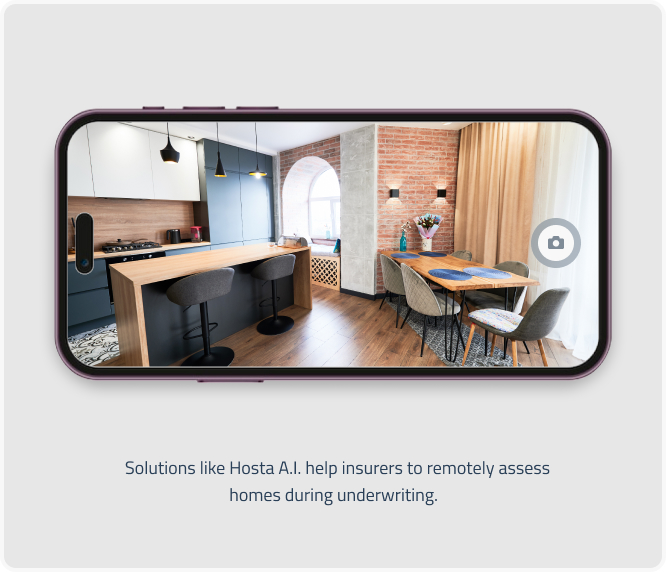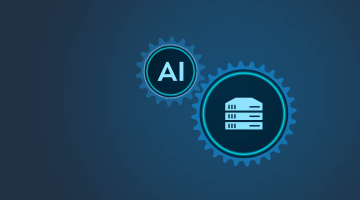

Insurance analytics and artificial intelligence
With ubiquitous digitization, the insurance sector has to adjust to changes driven by insurtech. Incumbents invest in digital transformation projects to sustain profits and not lag behind new digital players appearing in the insurance market daily. Today, AI is one of the most demanded technologies to be deployed in insurance organizations’ ecosystems.
Technologies empowered by artificial intelligence have already penetrated our lives, work, and homes. The prevalence and accessibility of AI give insurers an excellent chance to enrich the customer experience, automate most of the services, including claim management and policy administration, and establish a comprehensive data analytics system.
Use cases of artificial intelligence in insurance industry analytics
Artificial intelligence can enrich every single process inherent in insurance. Let’s overview the most frequent cases when AI adds value to the table.
Underwriting
Using AI and predictive analytics in underwriting helps insurers detect risks and accurately employ risk pricing. Some insurance companies already use AI-powered data analytics to determine risk ratings and forecast losses. For example, Hosta A.I., a solution for remote property assessment, allows carriers to assess the property using a few photos taken by homeowners without involving in-person evaluations usually made by adjusters or contractors. To create detailed estimates, the solution can identify, count, and classify all materials and objects in photos.

Fraud detection
According to The Coalition Against Insurance Fraud (CAIF), insurance fraud resulted in $308 billion in total losses. Many insurance organizations suffer from claims made by digital fraudsters. It makes them search for new means of detecting fraud, and AI has become one of the most powerful ones. Some companies already leverage machine learning to identify common fraud. Others use specialized software to verify image authenticity, flag suspicious claims, detect abnormal frequency of inquiries, and more.
Claims management
Data analytics assists in simplifying all claims-related processes by gathering information from disparate sources: medical records, forms, policy modifications, etc. Once this data is captured and validated, it should properly be organized to create a single source of truth.
Other cases when data analytics simplifies claims processes include gathering information about typical errors, detecting fraudulent actions and mitigating those, identifying patterns and trends, forecasting costs, and more.
Do you want to set up a 360-degree analytics system for your business?
Check insurance data analytics software development services we provide.
Challenges of establishing data analytics in insurance
Though the benefits of data analytics implementation are vivid, particular challenges should be addressed.
- Expertise. Data analytics is a complex science that deals with transforming data into valuable insights. It employs various smart algorithms, techniques, tools, and technologies to build robust systems capable of analyzing various data assets. To develop such a system, one should possess professional skills and specialized knowledge.
- Expenditures. Establishing or modernizing a data analytics platform for your insurance company is costly and time-consuming. Usually, the total costs will depend on factors such as a chosen data analytics platform and setup and maintenance costs.
- Technology changes. Adapting to evolving updates in data analytics can also be quite challenging. This field of science is rapidly changing, and one should monitor these changes regularly to not miss the opportunity to improve the system.
- Security. With ubiquitous cyberattacks, insurers should consider security measures to protect sensitive company and customer data.
All these challenges should be considered before data analytics is set up by all the stakeholders, including a professional data analytics services provider.
Experiencing a lack of technical expertise and skills?
Connect with a professional team to address your project challenges.
Benefits of artificial intelligence in insurance: Data analytics
Any new technology, implemented appropriately, can bring a slew of benefits. You must have already grasped some while reading about various use cases of artificial intelligence in the insurance sector. Let’s take a closer look.
- Personalization. Demand for greater personalization is one of the most prevalent concerns articulated by policyholders. By studying the specific needs of customers through analytics, carriers can offer tailored insurance products and services, improving customer loyalty.
- Predicting risks. By implementing predictive analytics, carriers can forecast various risks that may arise — for instance, the likelihood of new diseases or natural catastrophes. Risk modeling helps insurance companies think of respective mitigation and action plans.
- Simplified operations. By automating data gathering and processing processes, insurers can accelerate claim processing and settlement, reduce manual tasks and labor costs, decrease errors, and, therefore, enhance customer experience.
- Complying with regulations. The demand for clear, accurate, and data-driven reporting is fully met by AI-powered data analytics. The latter decreases the time needed to create a comprehensive 360-degree report, eliminating redundant actions, manual jobs, and human error.
Artificial intelligence in insurance software: Key features
To build a robust data analytics system, carriers should consider the goals they want to reach with this endeavor. Depending on the objectives, AI technology can be implemented for the following:
- Assessment of risks and underwriting
- Fraud detection
- Customer segmentation and personalization
- Predictive analytics for risk pricing
- Automation of claim management
- Natural language processing for customer support
- Image and video recognition for damage or risk assessment
If you consider AI automation for the purposes mentioned above, we’ll be happy to assist you.
Are you searching for the new ways to increase customer engagement?
Check out our solutions for insurance companies
Conclusion
The integration of AI-powered analytics in insurance presents transformative opportunities to improve operations, identify and eliminate risks, and increase customer engagement. Despite lots of advantages, challenges such as lack of expertise, high implementation costs, and security concerns must be considered. Understanding these challenges and insurance industry specifics, our team is ready to provide you with professional consulting and related services.
FAQ
What is the role of artificial intelligence in insurance analytics?
AI plays a crucial role in digital transformation, being one of the most demanded technologies to be deployed. It enhances operational efficiency, automates most insurance processes, and facilitates business growth. To discover the power of AI for your business, contact our team for a free consultation.
What are the key applications of artificial intelligence in insurance analytics?
Among AI’s most frequent use cases in insurance analytics are underwriting, claims, and fraud detection. By processing vast amounts of data, AI allows insurers to capture and visualize indicators that are meaningful for their particular cases: risks, claims, finances, customers, etc.
In what ways do smart algorithms revolutionize risk assessment in insurance analytics?
Smart algorithms leverage advanced techniques to process and analyze large volumes of data, which leads to more granular and accurate risk assessments. Leveraging predictive analytics, insurers can forecast future risks and create strategies to avoid those. At the same time, smart algorithms allow for automating risk evaluation processes, reducing costs and enhancing efficiency.
How is insurtech leveraging AI for advanced data analysis in insurance?
Insurtech uses ML to predict possible risks and losses with better accuracy. NLP is leveraged to automatically analyze texts or voices from customer interactions. Also, AI-fueled technologies allow for automating most insurance processes, resulting in reduced costs and enhanced efficiency.





